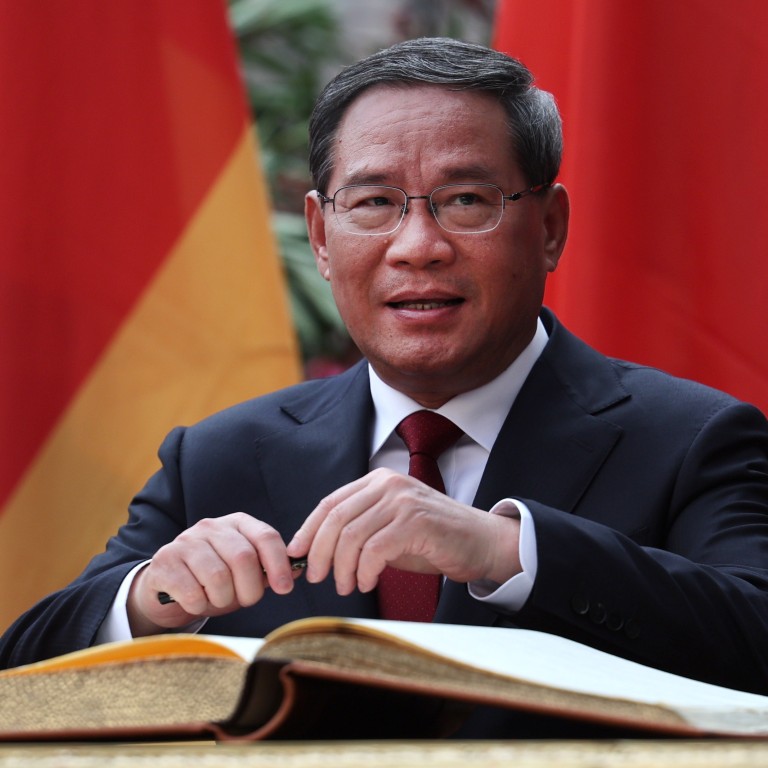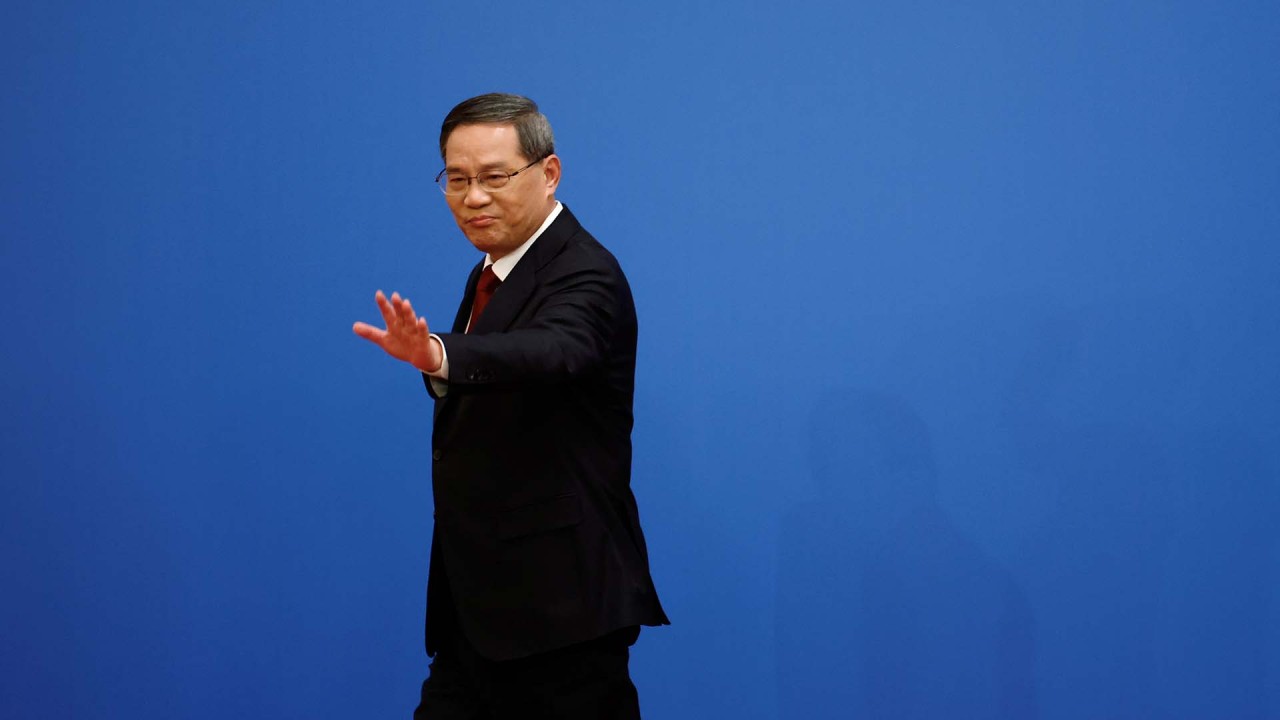
Charter flights and low-key tours mark a new approach for China’s premier
- Li Qiang is three months into the job and appears to be taking a different tack to his predecessor
- Observers say he could be trying to show deference to the president and to cut down on bureaucracy

He arrived in Berlin on Sunday on a chartered flight, according to a statement from Beijing.
His predecessor Li Keqiang, like other premiers before him, would have travelled on a special plane for any trip abroad – the Chinese equivalent of Air Force One.
The premier is the only Chinese official other than the president who is entitled to take a special flight, according to a 2012 directive aimed at streamlining procedures.
Other members of the Politburo Standing Committee – the apex of political power in China – can take chartered flights with approval, but not special planes.
“Being the party’s number two official, he is leading by example to live up to the ‘two upholds’,” Xie said.
He was referring to a political slogan that essentially requires all party members to uphold Xi’s leadership and authority over the whole party and to follow his directions resolutely.
It was a rare departure from the standard protocol – a top regional official almost always makes an appearance during such a visit.
Yin Li was apparently busy hosting an event on Xi’s political ideology that day, according to an official statement.
Xie said the low-key visit could be an attempt to set an example for such “inspection and research” trips, aiming to minimise disruption to the schedules of local officials.
“The leadership has said the campaign will be conducted with the participation of local cadres so that the leaders can see the true picture on the ground,” Xie said.
It is not yet clear if Li’s different approach will affect his influence over policymaking. As well as being premier, Li has other positions that were also held by his predecessor in various party organs – most of which were founded and are chaired by Xi.
Deng Yuwen, a former deputy editor of Study Times, run by the Central Party School, said it appeared Li was trying to avoid any “unnecessary suspicion and speculation” that could damage Xi’s trust in him.
He said that although Xi is now the most powerful leader in China since Mao Zedong, there has been no sign that he will let down his guard and share power with his close associates.
“Xi still has the leading role at the Central Deep Reform Commission, which is critical for China’s reform and economic development,” Deng said. “Knowing this, Li certainly wants to reassure Xi that China will not have a second power centre.”


